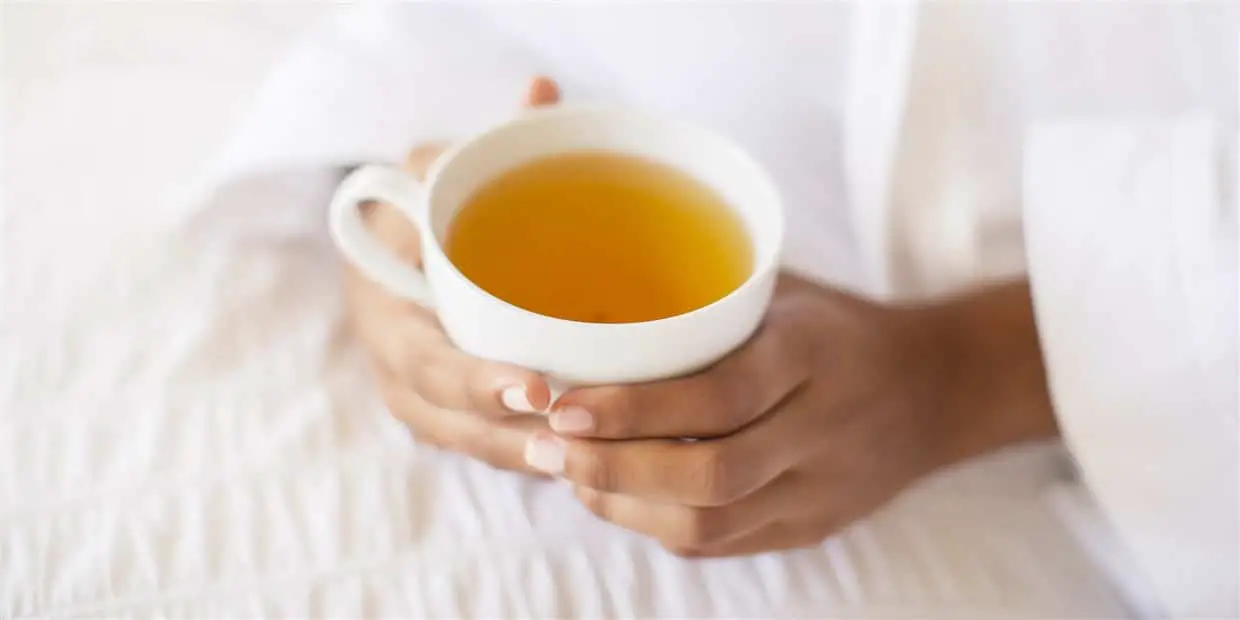
If you enjoy drinking tea blends, be advised that these often contain less caffeine than non-blends because the tea leaves that are usually present in a non-blended tea have been replaced with fruits, herbs and spices. If your tea contains mostly stems or “twigs” like our African Antlers or Hojicha teas, they probably do not contain much caffeine at all. Very “tippy” teas, or teas that have a high-tips-to-leaves ratio, usually have higher levels of caffeine than teas that do not contain many tips. Twisted or rolled teas, like oolong teas, typically release caffeine more slowly than other leaves that may be flat or open. There is significantly less caffeine in the average cup of tea - especially when including green and white teas brewed at shorter times and cooler temperatures. Powdered teas like matcha are typically very high in caffeine. Matcha tea leaves are actually so broken that the tea is sold as a fine powder which means you consume the entire leaf and reap all of the benefits. The most well-known tea that contains extremely broken leaves is matcha tea.
CAFFEINATED TEAS FULL
Oftentimes, the tea leaves in teabags are very broken so they typically have higher levels of caffeine than their full leaf counterparts, when infused the same way. The more broken a leaf, the faster the caffeine will be released in water. Teas are placed in different tea grades or categories based on how broken or whole their leaves are. The tea grade can tell you a lot about the level of caffeine in your cup. For example, brewing teas in higher water temperature, for a longer period of time, or at a higher ratio of tea leaves to water will increase the amount of caffeine present in your tea. The amount of caffeine present in tea can be affected by the way the tea is processed or brewed.

If you are looking for a caffeine-free brew you’ll love our herbal teas. Green tea is another tasty option, and it has less caffeine content than black tea. Black tea is the most popular caffeinated tea, found in English breakfast tea, and is often the base of iced. Stay tuned for the upcoming release of our Caffeinated Tea Collection which will include blends of black, green, and white teas made with all-natural herbs from. So, if you are looking for a tea to replace your morning joe, we suggest checking out our selection of matcha and white teas. Caffeinated Tea Gives Energy Without the Jitters Black Tea. Until then, you can rest easy knowing that our teas typically have between 40 and 60 milligrams of caffeine per cup with matcha teas and white teas taking first and second place in the “Most Caffeinated Tea” category. Caffeine levels in tea can be affected by how they are processed and brewed, but we’ll get into that later. Tea leaves contain a variety of compounds such as minerals, vitamins, antioxidants and caffeine all of which are naturally occurring. No matter what you drink, there is no one-size-fits-all number for the amount of caffeine in your favorite type of tea. Read on to learn about the amount of caffeine in tea, what affects caffeine levels in tea and common caffeine myths. No matter what your reason is, understanding the amount of caffeine contained in your delicate teacup or monster mug will only enhance your experience and your relationship with tea. Some may simply enjoy the warm, comforting qualities of this ancient beverage while others love to cool down with it on a summer afternoon. While some drink it to wind down, others drink it to perk up. Systematic review of the potential adverse effects of caffeine consumption in healthy adults, pregnant women, adolescents, and children. Benefits and risks of caffeine and caffeinated beverages. Department of Agriculture, Agricultural Research Service. Trends in caffeine intake among US children and adolescents. In: Academy of Nutrition and Dietetics Complete Food and Nutrition Guide. Department of Health and Human Services and U.S. 2015-2020 Dietary Guidelines for Americans.Spilling the beans: How much caffeine is too much.Is your kid over-caffeinated? Academy of Nutrition and Dietetics.Coffee, caffeine, and health outcomes: An umbrella review.

Journal of the American Academy of Nutrition and Dietetics. Caffeinated teas generally include black teas, which contain more caffeine naturally, combined with other herbs and ingredients, to raise the caffeine content to roughly equal to or above that of the average coffee cup. adults based on the NHANES 2007-2012 surveys. Introducing high-caffeine tea, a relatively new and expanding category that tea enthusiasts can add to their collections. Daily patterns of caffeine intake and the association of intake with multiple sociodemographic and lifestyle factors in U.S.


 0 kommentar(er)
0 kommentar(er)
